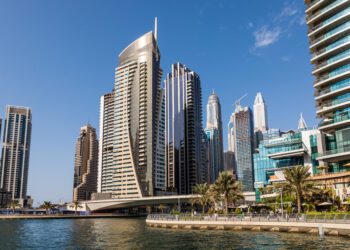In a strategic move, Saudi Arabia extends its Western asset portfolio by positioning itself as the majority owner of the UK’s Premier Airport, London Heathrow. The Saudi Investment Fund and private equity group Ardian have secured majority control of the airport, acquiring shares previously held by infrastructure giant Ferrovial in a significant transaction valued at $12 billion.
The deal, as reported by The Sunday Times of London, saw Ferrovial sell its 25% stake in Heathrow for £2.4 billion ($3 billion), with Ardian acquiring 15% and the Saudi PIF acquiring 10%. This transaction valued the airport at an impressive £9.5 billion ($12 billion), indicating a substantial increase from its previous valuation.
This move has drawn interest from remaining shareholders, who see the deal as highly favorable and appear inclined to sell their stakes. According to reports, under Heathrow’s shareholder agreement, Ardian and the Saudi PIF are obliged to buy shares from other stakeholders at the same valuation as the Ferrovial deal, prompting many shareholders to consider selling.
While the sovereign wealth funds of China, Qatar, and Singapore, along with major pension funds from Australia and Canada, hold stakes in Heathrow, indications suggest a potential willingness to sell by non-sovereign entities. If these sales materialize, Saudi Arabia and Ardian would collectively hold a 60% stake in the airport.
Saudi Arabia’s growing influence in global investments extends beyond the Heathrow acquisition. Notable investments in Western assets, including Newcastle United football club, the FIFA World Cup 2034 hosting bid, and ventures in sports such as LIV golf, have drawn attention and scrutiny.
The acquisition of Heathrow raises concerns about Saudi Arabia’s increasing presence in crucial Western infrastructure. Despite assurances from an unnamed source within the PIF-Ardian consortium about operational independence, the move has sparked discussions about strategic implications.
Heathrow Airport represents a lucrative investment opportunity for sovereign wealth funds, operating as a revenue generator through landing charges set by the UK’s Civil Aviation Authority. The airport’s expansion plans, including a proposed third runway, are met with regulatory challenges, although it remains a compelling long-term investment despite current traffic levels below pre-pandemic norms.

















